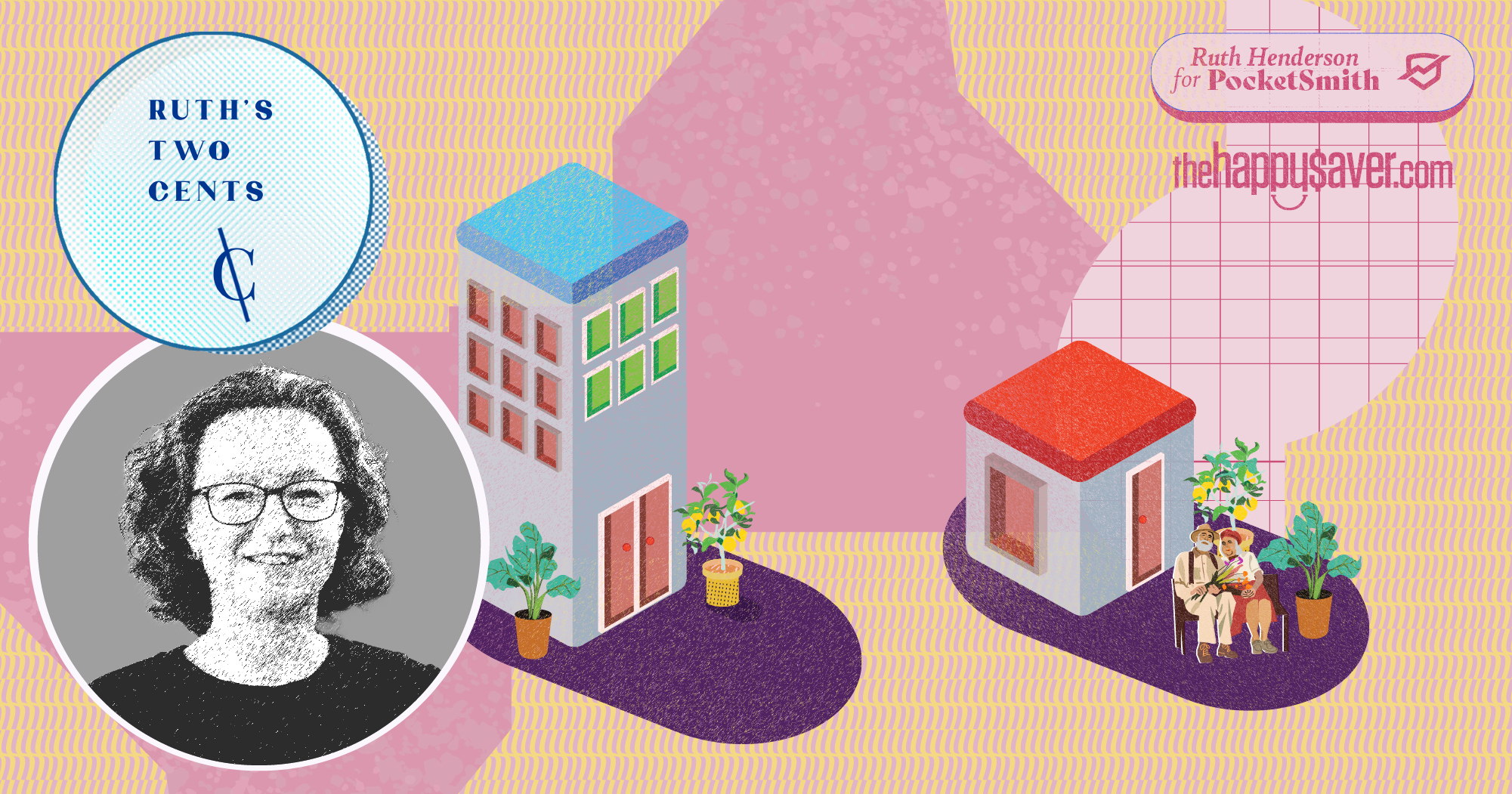
Hi Ruth,
I’m newly retired and thinking about downsizing. The money would make life easier, and a smaller place would mean less upkeep. On paper, it seems like the smart move. But after 30 years in this house, it’s not so simple. It’s full of memories, and the thought of leaving is hard to shake. I’m torn between what makes sense financially and what feels right emotionally. How do I know if the financial benefits are really worth it?
A good question and one that those decades younger than you should also be keen to hear the answer to. With house values rising, and the necessities of life pulling on our take-home pay during our working lives, it’s easy to get out of balance and move into retirement with a home that is worth a lot of money, but not much cash to pay for its upkeep, plus let you have an enjoyable retirement. In blunt terms, you may be asset-rich and cash poor.
The ideal is to head into retirement with secure housing that is fit for purpose, plus additional money and investments that you can readily, albeit carefully, use to top up the gap between your pension payment and what it costs you to live. You want this money to last as long as you do.
You can add more balance by downsizing your house to release some equity that you can use to live, but as you so eloquently put it, selling your family home is a huge emotional decision. It is natural to feel torn because your home is where your life happened. It holds your memories and milestones, and when you are surrounded by the stuff you have accumulated, it even holds your identity.
However, you are right in realising that your home is also a financial asset that could be used to finance this next chapter. I’m a fan of creating a retirement planning pros and cons list, and as you contemplate the next decade, now is a great time to reflect on whether your current house will serve you well going forward.
Pro
Con
As you go about your week, I’d encourage you to add notes to your pros and cons list. Once you note down the easy things, such as a smaller property would mean fewer lawns to mow, you can broaden your research by digging into the math of the situation. For example, a pro might be that you work out that your rates invoice goes down by $1,000 a year if you buy a smaller house.
If done well, you can free up a sizeable chunk of money, reduce your future living expenses such as insurance, and give yourself much more flexibility. For example, if you have a ‘lock and leave home’, you can easily zip away to spend a week with your family and friends. But it is only worth doing if you are sure this significant change in your life will improve your quality of life, which is why I would encourage you to work out and write down what you would do with the money and time you free up by moving house. Do you plan to travel more? If so, what will that cost? Will you worry less about your bills? If so, what are your bills now, and what do you estimate them to be in the future?

I’m in the fortunate position to speak with many people who do ‘right-size’ their home in retirement to release some equity. It’s what you do with the money you free up that counts. I’d encourage you to carefully tend to your freed-up cash to make it last as long as you do. It is very easy and tempting to go through the process of relocating your life to another house, and then blowing your cash on doing up that house, or having any kind of YOLO experiences on offer. Ultimately, if you don’t have a financial plan, you can very easily and quickly end up almost back at square one, but this time you have a house that is right for you, albeit worth less than your previous one, and no spare cash. So, my point is, if you are going to go through the effort to change your home, make sure you create a financial plan to invest the money you free up so that it can last the distance.
Running alongside the finances of your decision are the emotions. Big emotions. 30 years of memories created in and around one dwelling. But where were you before that? In another home. Cast your mind back to those memories too and realise that while the home plays a significant role, it was often the people in it who played a bigger one. You can take all of those memories to your new home. Think positively and take some time to imagine yourself driving out of a new driveway, on a new street, or in a new area. Imagine how exciting it might be to create a whole new set of memories in your retirement years.
If you have children who want the best for you, talk to them about what an address change might do for you. Get their thoughts and insights too. If your hesitation to move is due to the effort of it all, lean on your family for help. In my experience, adult children are relieved and pleased to know their parents are happy and living in the right home for them. They want you to make the right decision for yourself. Plus, in your friend group, seek out their wisdom as I’m sure many of them have downsized or right-sized their home for retirement, are considering doing so, or know someone who has. Ask them about the financial implications of their housing change. What did it cost them, and how much did they manage to add to their retirement savings? Add their points to your own pros and cons list.
While there are few calculators to measure the emotional weight of your decision, there are plenty of retirement calculators to work out how much money you need to have saved and invested to live a happy retirement. How much money do I need to have invested at 65 is a helpful resource, as is Work out your retirement number by Sorted.
Your question does not have urgency to it, and that is a good thing because it means you have time to consider and run the numbers behind what will give you peace of mind and a sense of freedom as you head into a happy retirement. How do you know if the financial benefits are really worth it? You gather as much financial information as you can. Then you weigh up your options and make a decision. You have worked hard to get to this point, and while you sit at the kitchen table that has nourished you for the last 30 years, take the time to plan out what kitchen table and what view out the window will bring you happiness for the next 30 years.
Got a burning money question for Ruth? Send them through to [email protected]!
Ruth blogs at thehappysaver.com all about how she and her family handle money. What’s the secret? Spend less than you earn, invest the difference, avoid debt and budget each dollar that flows through your hands. She firmly believes that if you can just get the basics right, life becomes easier from there on in.